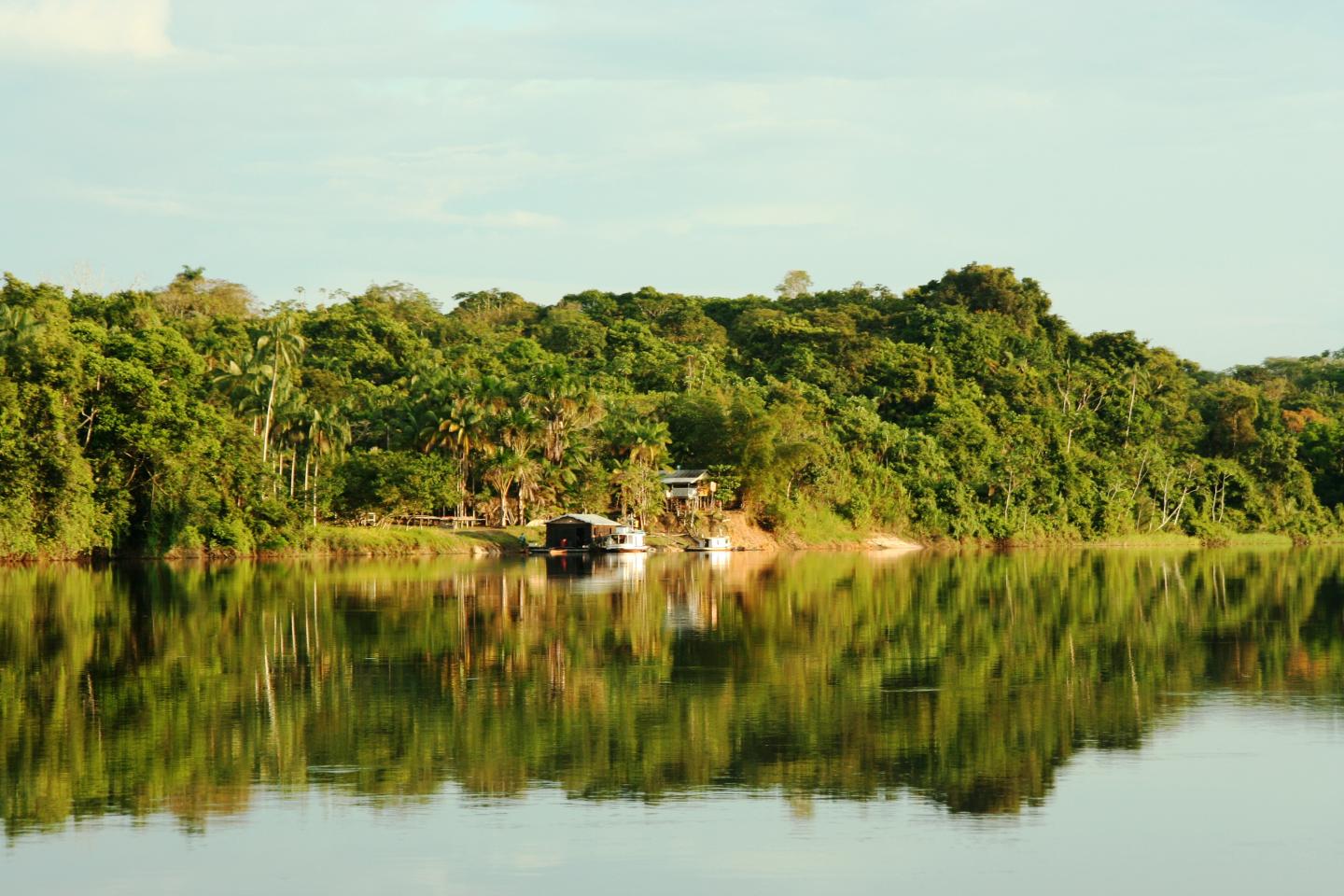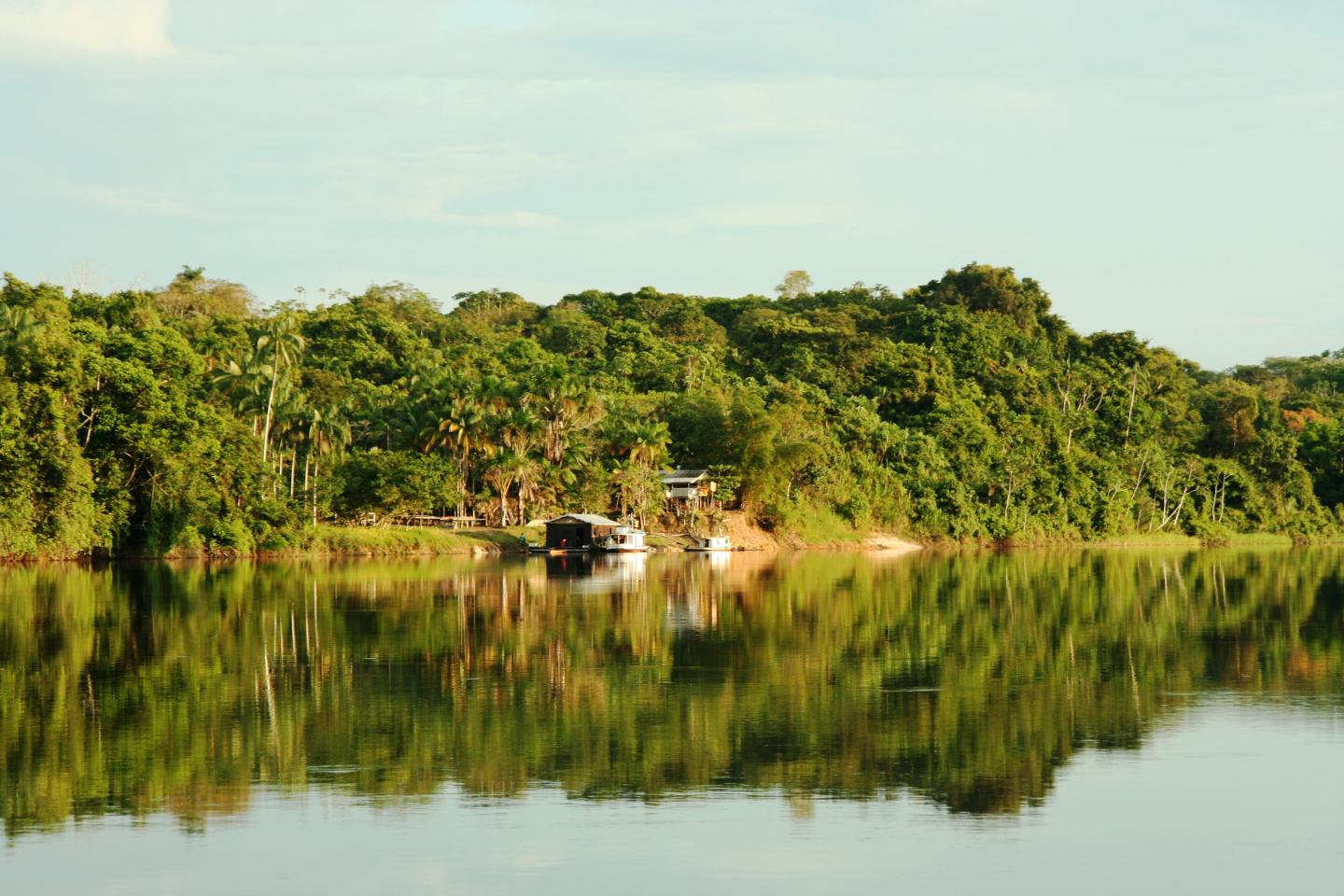
Credit: Luke Parry
Amazonians living in remote cities are more vulnerable to flooding and droughts than more accessible centres, researchers at Lancaster University have discovered.
Roadless cities have been found to be more vulnerable to the effects of flooding, because they tend to be less-developed and have inadequate sanitation, exposing inhabitants to environmental pollution and contaminated water.
In the Brazilian part of the Amazon Basin, the research found that almost a million people live in a total of 68 roadless cities -almost wholly reliant on rivers for the movement of people, many services, and virtually all trade-goods.
But, experts have warned, building new roads in an attempt to tackle this vulnerability would be "counter-productive", putting marginalised people at risk of further harm and exacerbating global climate change by driving deforestation. Decades of careful research in the Amazon has shown that new roads lead inevitably to illegal logging, deforestation and the replacement of rainforest, initially with cattle-ranching.
Dr Luke Parry, of Lancaster Environment Centre, said: "Floods and droughts are becoming more common in the Brazilian Amazon due to climate change and our study shows that the inhabitants of remote and roadless cities are likely to be the worst-affected.
"We compared the vulnerability of more than 300 cities in the region and found that overall levels of development are lower in less accessible cities, including worse access to clean water and sanitation, and sub-standard healthcare and education delivery."
Researchers also discovered in the study, published in Annals of the American Association of Geographers, that income inequality and the prices of imported foods like frozen chicken were higher in remote and roadless cities. The team also included researchers based in the Amazon, at the Federal Universities of Pará and Amazonas states.
Another major finding was that these hard-to-access towns are also responsible for conserving a huge amount of rainforest and indigenous lands.
Dr Parry added: "This means that attempts to reduce vulnerability in these places must also avoid causing further deforestation.
"For instance, building new roads would be counter-productive because it would lead to more deforestation, more climate change, and ultimately, more harm from floods and droughts."
The academics involved in the study have suggested that, in order for remote and roadless cities to cope with droughts and floods, local politicians will need to build 'adaptive capacity'.
This means improving both the functioning of essential public services such as healthcare, education and sanitation and also investing time, effort and money in planning a response to disasters. These solutions will require concerted efforts to combat corruption and embezzlement of public funds in hard-to-access provincial towns.
The team emphasised that social groups such as indigenous peoples merit particular attention, because they are already at the margins of Brazilian society and are therefore especially vulnerable to extreme climatic shocks.
Finally, the researchers said strategies to protect citizens from harm must recognize the differences between different urban areas – cities can vary hugely in terms of, for example, their topology and flood-risk.
Likewise, some roadless cities are more prone to becoming 'cut-off' during droughts because the navigability of the rivers nearby may be harder due to rapids and in some cases, journeys of thousands of kilometres that can take a month by boat.
###
Media Contact
Sarah Carter
[email protected]
01-524-592-602
http://www.lancs.ac.uk
Related Journal Article
http://dx.doi.org/10.1080/24694452.2017.1325726
############
Story Source: Materials provided by Scienmag





